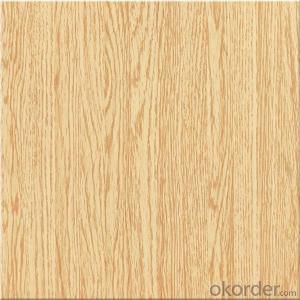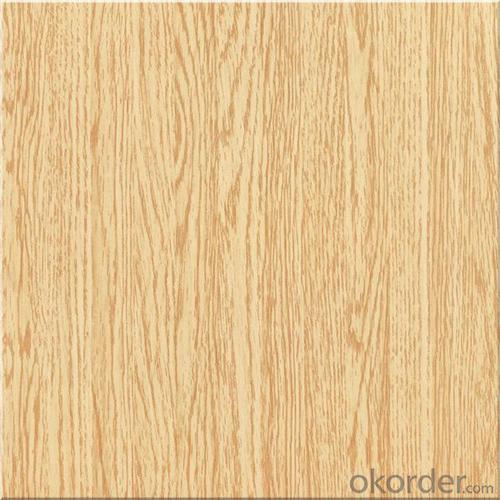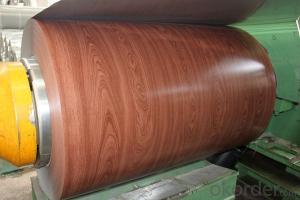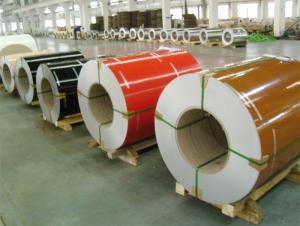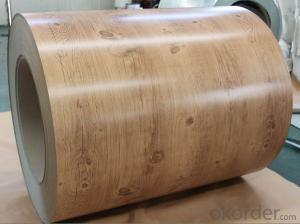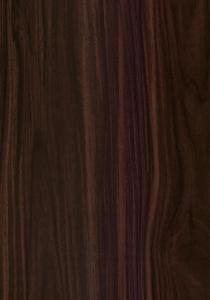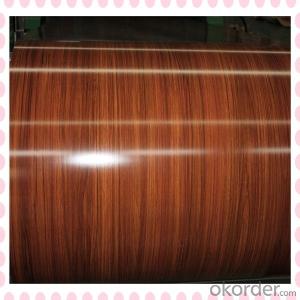Aluminum Coil Tube Wooden Grain Coating Aluminium Coil AA3003 for Ceiling
- Loading Port:
- Shanghai
- Payment Terms:
- TT OR LC
- Min Order Qty:
- 5 m.t.
- Supply Capability:
- 10000 m.t./month
OKorder Service Pledge
OKorder Financial Service
You Might Also Like
Specification
1. Specification of Wooden Grain Coating Aluminium Coil AA3003 for Ceiling
characteristics | Application |
1) Super peeling strength | 1) Building exterior curtain walls |
2) Excellent surface flatness and smoothness | 2) Decoration and renovation additions for old buildings |
3) Superior weather, corrosion, pollutant resistance | 3) Decoration of interior walls, ceilings, bathrooms, kitchens and balconies |
4) Even coating, various colors | 4) Shop door decorations |
5) Fireproof, excellent heat and sound insulation | 5) Advertisement board display platforms and signboards |
6) Superior impact resistance | 6) Wallboards and ceilings for tunnels |
7) Lightweight and easy to process | 7) Industrial materials, materials for vehicles and boats |
2. Application of Wooden Grain Coating Aluminium Coil AA3003 for Ceiling
(1).Interior: wall cladding, ceilings, bathrooms, kitchens and balconies, shutters, doors...
(2).Exterior: wall cladding, facades, roofing, canopies, tunnels, column covers , renovations...
(3).Advertisement: display platforms, signboards, fascia, shop fronts...
3. Feature of Wooden Grain Coating Aluminium Coil AA3003 for Ceiling
• Our goods quality is top, the surface is smooth, and every steel coil
• No Joint, No Bends, no spots, no roller marks.
• MTC will be provided with goods, third part inspection is acceptable, for example, SGS, BV. Etc
Be free from Oil Stain, Dent, Inclusion, Scratches, Stain, Oxide Dicoloration, Breaks, Corrosion, Roll Marks, Dirt Streaks and other defect which will interfere with use
4. Certificate:
SGS and ROHS(if client request, paid by client), MTC(plant provided), Certificate of Origin(FORM A, FORM E, CO), Bureau Veritas and SGS (if client request, paid by client), CIQS certificate
5. Image of Wooden Grain Coating Aluminium Coil AA3003 for Ceiling
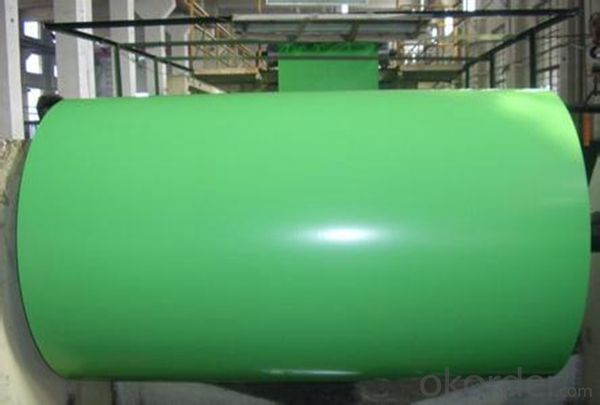
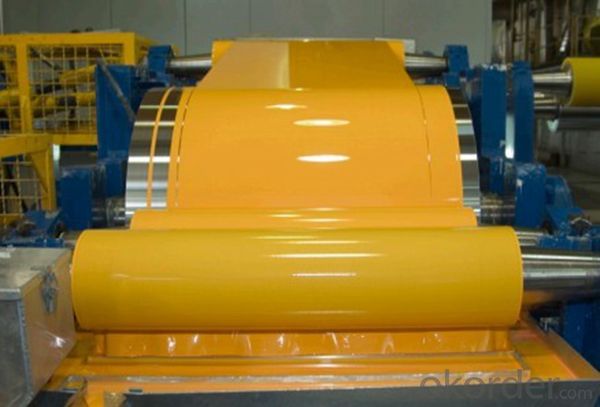
6. Package and shipping of Wooden Grain Coating Aluminium Coil AA3003 for Ceiling
eye to wall
eye to the wall
with wood pallet (wooded case also available)
7. FAQ
1) What is the delivery time?
Dpends on actual order, around 20 to 35 days
2)What is the QC system:
We have QC staff of 20 persons and advanced equipment, each production is with MTC traced from Aluminum ingot lot.
3) What market do you mainly sell to?
Australia, America, Asia, Middle East, Western Europe, Africa etc
- Q: What are the manufacturers of color coated aluminium rolls made of aluminium in Jiangsu?
- Jiangsu Dongwu new Mstar Technology Ltd is located in the Yangtze River Delta Jiangnan Industrial City - Changzhou, the company covers an area of more than 10 square meters, the existing standard workshop of more than 50 thousand square meters, is a professional production of color coated aluminum coil, aluminum film, aluminum veneer, aluminum ceiling and other new building materials of the modern enterprise.
- Q: How are aluminum coils cleaned and maintained?
- Regular cleaning is essential for maintaining the optimal performance and efficiency of aluminum coils, which are commonly used in HVAC systems and refrigeration units. Here's a step-by-step guide on how to clean and maintain them: 1. Prioritize safety: Before starting the cleaning process, ensure that the power to the HVAC system or refrigeration unit is switched off to prevent accidents. 2. Remove debris: Begin by getting rid of any visible debris like leaves, dirt, or dust from the aluminum coils. Use a soft brush or a vacuum cleaner with a brush attachment to gently eliminate the debris. 3. Apply a cleaning solution: Create a cleaning solution by mixing water with a mild detergent or coil cleaner. Follow the instructions on the product label to achieve the proper dilution ratio. Transfer the solution to a spray bottle. 4. Use the cleaning solution: Spray the cleaning solution onto the aluminum coils, ensuring that all areas are covered. Allow the solution to sit for a few minutes to loosen any dirt or grime. 5. Gently scrub the coils: Use a soft brush or a coil cleaning brush to gently scrub the aluminum coils. Take care not to apply excessive pressure, as it may damage the delicate fins on the coils. Concentrate on areas with stubborn dirt or buildup. 6. Rinse with water: After scrubbing, thoroughly rinse the aluminum coils with clean water. You can use a hose or a pressure washer on a low setting to ensure that all the cleaning solution and dirt are removed. Make sure that the water flows in the opposite direction of the airflow to prevent pushing debris further into the coils. 7. Inspect for damage: While cleaning, inspect the aluminum coils for any signs of damage, such as bent fins or leaks. If you notice any issues, it is advisable to contact a professional technician for repairs. 8. Allow for complete drying: Once rinsed, allow the aluminum coils to air dry completely before turning the power back on. This will prevent any moisture-related problems and ensure that the coils are ready for use. 9. Maintain a regular cleaning schedule: To keep the aluminum coils in excellent condition, it is crucial to establish a regular cleaning schedule. Generally, cleaning every three to six months is recommended, depending on usage and environmental factors. However, if the coils are located in a highly polluted or dusty area, more frequent cleaning may be necessary. By following these steps and adhering to a regular cleaning schedule, you can ensure that your aluminum coils remain clean, efficient, and in optimal working condition.
- Q: Are there any environmental benefits to using aluminum coils?
- Yes, there are several environmental benefits to using aluminum coils. Firstly, aluminum is a highly recyclable material, meaning that it can be reused multiple times without losing its quality. This reduces the need for extracting and processing new raw materials, saving energy and reducing carbon emissions. Additionally, aluminum coils are more lightweight compared to other materials, reducing transportation fuel consumption and associated greenhouse gas emissions. Moreover, aluminum has a longer lifespan, making it more durable and reducing waste generation. Overall, using aluminum coils contributes to a more sustainable and eco-friendly approach in various industries.
- Q: Can aluminum coils be used in electrical conductors?
- Aluminum coils can indeed be utilized in electrical conductors. With its exceptional electrical conductivity, aluminum ranks second only to copper in this aspect. Its remarkable electrical properties render it suitable for a wide range of electrical applications, including coil production. In fact, aluminum coils are extensively employed in electrical conductors for various purposes such as transformers, motors, generators, and power transmission lines. These coils possess the advantages of being lightweight, cost-effective, and having good thermal conductivity. Nevertheless, it is crucial to acknowledge that aluminum has a lower tensile strength compared to copper. Therefore, it is essential to carefully consider the design to ensure the stability and durability of the coil. Moreover, it is worth noting that aluminum coils may require larger cross-sectional areas than copper coils to achieve the same electrical performance.
- Q: What are the potential drawbacks or limitations of using aluminum coils?
- One potential drawback of using aluminum coils is their relatively low strength compared to other materials like steel. This limits their application in certain industries or environments where high mechanical strength is required. Additionally, aluminum coils are more susceptible to corrosion, especially in corrosive environments or when exposed to certain chemicals. This can lead to a reduced lifespan and increased maintenance costs. Moreover, aluminum coils can be more expensive compared to other materials, making them less cost-effective in certain applications.
- Q: Can aluminum coils be used for pharmaceutical packaging?
- Yes, aluminum coils can be used for pharmaceutical packaging. Aluminum is a popular choice for pharmaceutical packaging due to its various beneficial properties. It is lightweight, corrosion-resistant, and has excellent barrier properties, making it ideal for protecting pharmaceutical products from external factors such as moisture, oxygen, and light. Aluminum coils can be easily formed into different shapes and sizes, providing versatility for packaging needs. Additionally, aluminum is non-toxic and non-reactive, ensuring the safety and integrity of pharmaceutical products.
- Q: Can aluminum coils be used in the manufacturing of beverage cans?
- Yes, aluminum coils can be used in the manufacturing of beverage cans. Aluminum coils are commonly used in the production of beverage cans due to their lightweight, corrosion-resistant, and malleable properties. These coils are processed and shaped into cans during the manufacturing process, providing a durable and cost-effective solution for packaging beverages.
- Q: Why do the layers loose when taking out coil after roll of aluminum 0.14?
- After rolling, the most possible reason may be poor deoiling effect. I think, for 0.14mm aluminum coil, the lining sleeve will not be forgotten. After rolling , oil ooze from aluminum layers, and the support of aluminum coil is not enough, leading to coil collapsing. The specific manifestations are that the edges of even round aluminum layers become like water ripple, and that the aluminum coils suddenly become uneven when taking out coil.
- Q: What are the different widths available for aluminum coils?
- The different widths available for aluminum coils can vary depending on the manufacturer and specific application. However, the most common widths for aluminum coils range from as small as 12 inches up to 60 inches or more. These widths are typically measured in inches and can be customized to fit specific industrial or commercial needs. The selection of the appropriate width for aluminum coils is crucial as it directly affects the efficiency and effectiveness of various processes such as manufacturing, construction, and transportation. Additionally, the width of aluminum coils can also impact the cost and availability of the material, making it an important consideration for both buyers and suppliers.
- Q: What is the role of aluminum coils in the construction of railways?
- Aluminum coils are used in the construction of railways for various purposes, primarily for the manufacturing of overhead lines and electrical conductors. Due to their high conductivity, lightweight nature, and corrosion resistance, aluminum coils are ideal for transmitting electrical power and ensuring efficient and reliable railway operations. These coils are also utilized in the production of railway carriages and components, providing strength and durability while reducing overall weight, which ultimately improves fuel efficiency and lowers operating costs. Overall, aluminum coils play a crucial role in enhancing the performance, safety, and sustainability of railway systems.
Send your message to us
Aluminum Coil Tube Wooden Grain Coating Aluminium Coil AA3003 for Ceiling
- Loading Port:
- Shanghai
- Payment Terms:
- TT OR LC
- Min Order Qty:
- 5 m.t.
- Supply Capability:
- 10000 m.t./month
OKorder Service Pledge
OKorder Financial Service
Similar products
Hot products
Hot Searches
Related keywords
